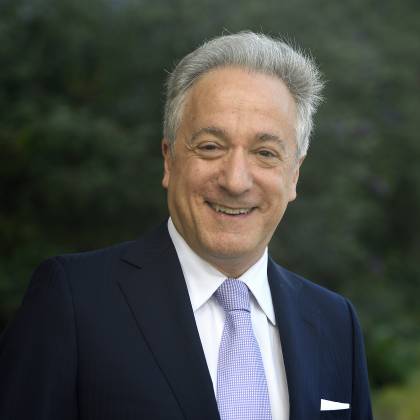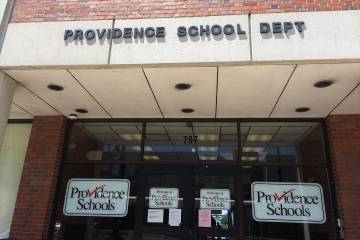The nation's growing concern over the accumulated student learning loss during COVID-19 is even more acute with respect to low-income communities. These students seldom have the necessary technologies to succeed in an online learning environment; similarly, their school systems often lack resources to prepare teachers for effective online pedagogical practices.
While education experts recognize the challenge to help students catch up to grade-level mastery, there is less agreement about what to do to make that happen. The common practice in the United States has been to try to take student backwards and teach them the missed skills from prior years. However, there is reason to believe this isn't the best approach.
"Remediation doesn't work," says David Steiner, executive director of the Institute for Education Policy at the Johns Hopkins School of Education. "In fact, it has done damage by locking students into long-term learning gaps that worsen each year. They never catch up."
Steiner, his colleagues at the Institute for Education Policy, and his collaborators outside Johns Hopkins—particularly Daniel Weisberg, the CEO of education nonprofit The New Teacher Project—are at the forefront of the growing community of education strategists. Their headline: "Don't remediate. Accelerate."

Image caption: David Steiner
Steiner argues that the solution is not to "teach again" the material that students haven't learned. Instead, he recommends looking forward to what those students will need to know to succeed the next day or the next week and focusing solely on those skills—a strategy known as acceleration. "We have to realize, in this challenging time, that we cannot teach everything we want to teach," says Steiner. "Instead, we must figure out the critical skills and pieces of knowledge students must have in hand to prepare them for tomorrow—not last year or, worse, the year before that."
In this pandemic-inspired moment of reflection and rethinking education, acceleration is gaining traction. Steiner and colleagues have made headlines recently when UNESCO and The World Bank, surveying a global loss in learning, gave him an opportunity to discuss acceleration strategies for students. Steiner has discussed acceleration on multiple news platforms, such as The Washington Post, the Financial Times, and local television news outlets.
In recent presentations to the National Association of State Boards of Education and the National Alliance for Public Charter Schools, Steiner told education policymakers that acceleration requires trade-offs: Educators must be prepared to reorganize school time and the use of school personnel to support accelerated learning. The key is that the learning goals be rigorous.
"Acceleration is just-in-time education that is contextual to the immediate grade level that you're trying to teach the rest of the class" Steiner told the NASBE.
To gather baseline data before the new school year, Steiner advocates for broad-based diagnostic assessments to gauge where the learning gaps are and to define what, exactly, must be addressed to move the students forward. Educators have to understand the location and scale of learning challenges to know how to address them, Steiner says. To that end, the Institute for Education Policy at Hopkins has helped to support state and district adoption of knowledge-rich course content to meet the high standards acceleration demands. Additionally, the institute has been a leader in developing content-based state assessments.
"Too often, our assessments are not linked to the curriculum," he adds. "This has to change, and we are developing the necessary assessment models for that purpose."
The last piece of the puzzle is the pedagogy of acceleration. Pre-service teacher preparation and in-school professional development are critical for acceleration strategies to work.
"When strategy, assessment, professional development, and curricula align, we can create the conditions for effective student learning," Steiner says.










